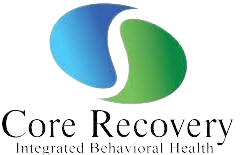A Guide To Starting And Progressing On The Road To Healing
Eating disorders, a complex and often misunderstood issue, affect millions of lives worldwide. From anorexia nervosa to bulimia and binge-eating disorder, these conditions can have devastating physical and mental health consequences. However, amidst the shadows of these disorders lies a beacon of hope: eating disorder recovery. In this blog, we will embark on a journey to explore the world of eating disorders and their prevalence. But more importantly, we will highlight the significance of eating disorder recovery. This journey isn’t just about statistics and facts; it’s about the stories of resilience, strength, and healing. Join us as we uncover the transformative power of eating disorder recovery.
What Is Eating Disorder Recovery
Eating disorder recovery is a courageous and transformative journey toward reclaiming one’s life from the clutches of destructive eating behaviors. It involves a multifaceted approach, encompassing physical, emotional, and psychological healing. Recovery entails re-establishing a healthy relationship with food, fostering self-acceptance, and addressing the root causes of the disorder. It’s about breaking free from obsession and regaining control over one’s life. Through professional support, self-reflection, and perseverance, individuals learn to embrace nourishment, self-love, and a brighter, balanced future. Eating disorder recovery is a beacon of hope and a testament to the strength of the human spirit.
Benefits Of Eating Disorder Recovery
Eating disorder recovery is a courageous and transformative journey that brings profound benefits, positively impacting every aspect of an individual’s life. Here are some crucial advantages of embarking on this path to healing:
- Improved Physical Health: Recovery leads to restoring nutritional balance and repairing the body’s health. It reverses the damaging physical effects of malnutrition, ensuring vital organs and bodily systems function optimally.
- Enhanced Mental Well-being: Overcoming an eating disorder alleviates anxiety, depression, and obsessive thoughts, promoting a healthier mental state. Individuals regain control over their thoughts and emotions, fostering improved self-esteem and overall mental wellness.
- Rebuilding Relationships: Recovery enables individuals to rebuild strained relationships caused by the disorder. Open communication and a healthier mind pave the way for more meaningful connections with loved ones.
- Restoration of Independence: Through recovery, individuals regain their autonomy and independence. They learn to make choices based on their well-being rather than the disorder’s grip, empowering them to lead fulfilling lives.
- Increased Energy and Vitality: Individuals experience increased energy levels and a more incredible zest for life as the body receives proper nourishment and care. They can engage in activities they enjoy and live life to the fullest.
- Positive Body Image and Self-Acceptance: Recovery fosters a healthier body image and a more positive self-perception. Individuals learn to appreciate their bodies, focusing on strength, health, and self-acceptance rather than unrealistic ideals.
- Enhanced Quality of Life: Ultimately, eating disorder recovery significantly elevates the overall quality of life. It brings joy, peace, and a sense of purpose, allowing individuals to pursue their passions, nurture relationships, and embrace life’s opportunities.
Eating disorder recovery is a journey of hope, resilience, and transformation. It offers a chance for a brighter future, enabling individuals to live fulfilling lives unburdened by the chains of their past struggles.
The Physical And Mental Toll Of Eating Disorders
Eating disorders, such as anorexia nervosa, bulimia nervosa, and binge-eating disorder, are not just about food choices; they impact both the body and mind, presenting a complex web of physical and mental challenges.
The Physical Toll
- Malnutrition and Weight Fluctuations: In the case of anorexia nervosa, extreme calorie restriction can lead to severe malnutrition. Conversely, binge eating may result in rapid weight gain. Both extremes strain the body.
- Gastrointestinal Distress: Frequent purging behaviors in bulimia wreak havoc on the digestive system, leading to issues like acid reflux, gastritis, and even esophageal damage.
- Cardiovascular Complications: Eating disorders can lead to irregular heart rhythms, low blood pressure, and heart palpitations. In severe cases, they may contribute to heart failure.
- Bone Health: Reduced bone density is typical in individuals with eating disorders, making bones brittle and prone to fractures.
The Mental Toll
- Anxiety and Depression: Eating disorders often coexist with anxiety and depression. Constant preoccupation with food, weight, and body image heightens feelings of anxiety and hopelessness.
- Obsessive Thoughts: Individuals with eating disorders frequently battle obsessive thoughts related to food and their bodies, making it challenging to focus on daily life.
- Low Self-Esteem: Negative body image and societal pressure exacerbate low self-esteem, making individuals feel unworthy or undeserving of happiness.
- Isolation and Shame: Many people with eating disorders isolate themselves due to feelings of shame or guilt. This isolation can hinder recovery and exacerbate mental health issues.
- Control and Perfectionism: Eating disorders often serve as a misguided attempt to regain control in life. Perfectionism can drive these behaviors to dangerous extremes.
Understanding the physical and mental toll of eating disorders is crucial for recognizing the need for help and support. Recovery is about healing the body and restoring mental well-being and overall quality of life. It’s a journey towards reclaiming health, happiness, and control from the grasp of these challenging conditions.
Overcoming Challenges In Eating Disorder Recovery
Eating disorder recovery is a journey fraught with obstacles, but overcoming these challenges is crucial for a successful path to healing and growth. Here are five significant hurdles and strategies to conquer them:
Acknowledging the Severity
Recognizing the gravity of an eating disorder is the initial and pivotal stride toward recovery. This acknowledgment signifies the imperative need for professional guidance. By acknowledging the necessity of expert intervention, individuals can lay the foundation for a well-structured and holistic approach to healing, offering them the best chance of reclaiming their lives from the clutches of their disorder.
Developing Coping Mechanisms
Developing healthy coping mechanisms is essential in eating disorder recovery. Stress management, mindfulness, and creative pursuits like art or writing help replace detrimental habits. These strategies empower individuals, providing healthier ways to manage emotions and stress during recovery.
Navigating Relapses
Relapses, though common, don’t define the recovery journey. Acknowledging setbacks enables regrouping, learning, and recommitting to the healing process. Understanding that lapses are part of the progress cultivates resilience in overcoming an eating disorder.
Body Image and Self-Esteem
Rebuilding a positive body image and self-esteem after an eating disorder is an ongoing struggle. Therapy sessions and support groups are vital in this process, helping reshape self-perception and nurturing self-acceptance. The guidance and understanding within these environments contribute to a healthier sense of self and a more positive outlook on body image.
Social Reintegration
Reintegrating into social circles after an eating disorder is challenging. Building a supportive network of understanding friends and family is crucial. Educating loved ones about the disorder fosters empathy, easing the transition and creating a compassionate environment for sustained recovery.
By facing these challenges head-on and seeking appropriate support, individuals can navigate the path to eating disorder recovery with resilience and determination. Remember, recovery is a marathon, not a sprint; each step forward is a triumph towards a healthier, happier life.
Importance Of Professional Treatment
Eating disorders are complex and often life-threatening conditions that require specialized care and treatment. While it may be tempting to try self-help methods, the importance of professional treatment cannot be overstated in the journey toward recovery. Here, we’ll delve into why seeking help from trained experts is essential when dealing with eating disorders.
Specialized Expertise
Healthcare professionals provide professional treatment for eating disorders with specialized training and experience in this field. They understand the complexities of these disorders, including the physical, emotional, and psychological aspects. This expertise allows them to develop tailored treatment plans that address the unique needs of each individual.
Holistic Assessment
Eating disorder recovery requires a comprehensive assessment of a person’s physical health, nutritional status, and mental well-being. Professionals can conduct thorough evaluations to identify any underlying medical issues or co-occurring mental health conditions contributing to the eating disorder. This holistic approach ensures that all aspects of the disorder are addressed.
Evidence-Based Approaches
Professional treatment relies on evidence-based therapies and interventions that have been scientifically proven effective in treating eating disorders. These may include cognitive-behavioral therapy (CBT), dialectical behavior therapy (DBT), nutritional counseling, and medical monitoring. Such evidence-based treatments provide individuals with the best chance of recovery.
Personalized Treatment Plans
Every individual’s journey to recovery is unique, and a one-size-fits-all approach doesn’t work for eating disorders. Professional treatment involves creating personalized treatment plans considering the individual’s needs, challenges, and goals. This tailored approach increases the likelihood of successful recovery.
Emotional Support
Eating disorders often have deep emotional roots, and individuals may struggle with guilt, shame, and low self-esteem. Professionals are trained to provide emotional support and a safe space for individuals to explore these emotions. They can help individuals develop healthier coping mechanisms and self-acceptance.
Monitoring and Accountability
Regular monitoring of physical health, nutritional intake, and progress toward recovery is crucial to professional treatment. Healthcare professionals can track an individual’s physical well-being, ensuring that they meet their nutritional needs and address any complications that may arise during recovery. This monitoring provides a safety net and accountability.
Professional treatment is not just beneficial; it is often essential for individuals struggling with eating disorders. It offers the expertise, personalized care, and evidence-based interventions necessary for a successful recovery journey. Seeking help from healthcare professionals is a courageous step toward reclaiming one’s health, happiness, and life beyond the grips of an eating disorder.
Eating disorders wreak havoc on physical and mental well-being, affecting millions globally. They can lead to severe health issues and even death without proper intervention. The toll of living with an eating disorder is profound, impacting relationships, self-esteem, and overall quality of life. It’s an impossible battle, causing immense suffering and isolation.







 In CA By O360®
In CA By O360®